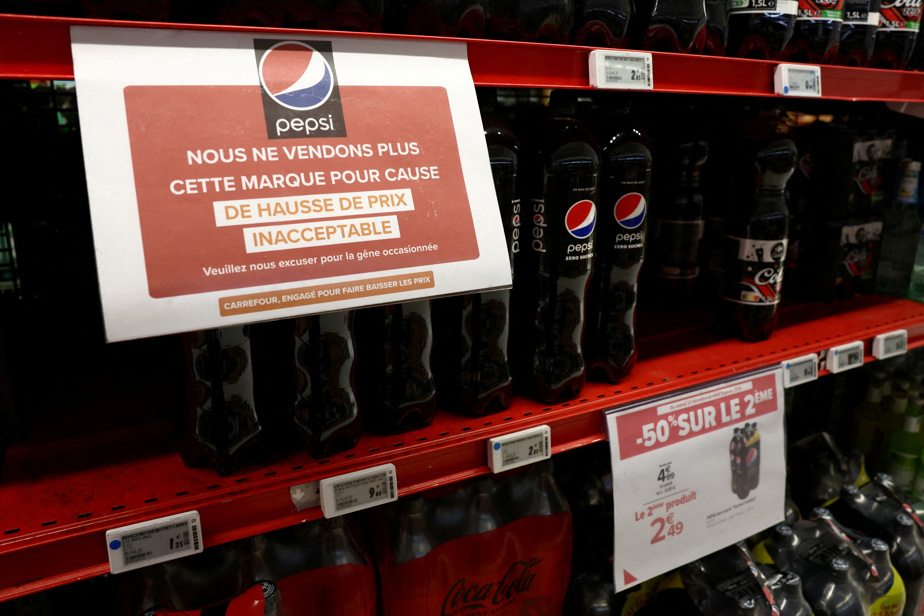(Paris) Global supermarket chain Carrefour will stop selling PepsiCo products in its stores in France, Belgium, Spain and Italy due to price hikes for popular products like Lay’s chips, Quaker Oats, Lipton iced tea and other soft drinks.
The French grocery chain said it removed PepsiCo products from shelves in France on Thursday.
“We no longer sell this brand due to unacceptable price increases,” read small signs in its stores.
This is the consequence of a new French law intended to combat the rising cost of living, which means supermarkets risk millions of euros in fines if they fail to reach an agreement with suppliers on prices by the end of the month.
The ban will also extend to Belgium, Spain and Italy, but Carrefour, which has 12,225 stores in more than 30 countries, did not say when it would take effect in those countries.
PepsiCo products were still on shelves Friday in Rome and Barcelona. The Carrefour Italia press service said that information will be published in the coming days for customers in their stores in Italy.
PepsiCo said in a statement that it “has been in discussions with Carrefour for many months” and will continue to engage “in good faith” to try to ensure the availability of its products in Europe.
The company behind Cheetos, Mountain Dew and Rice-A-Roni has raised prices for seven straight quarters, up 11% from July to September.
Its profits are rising, although higher prices have led to lower sales as consumers switch to cheaper brands. PepsiCo also said it was reducing package sizes to meet consumer demand for convenience and portion control.
“I think the consumer is more selective,” PepsiCo CFO Hugh Johnston told investors in October.
French President Emmanuel Macron’s government has combatted the rising cost of living for households by passing a law in November to implement “emergency measures” to tackle high prices.
The law brought forward annual price-setting negotiations between supermarkets and their suppliers to January 31. Fines have been increased to €5 million, the equivalent of C$7.3 million, for food companies that fail to meet the new price-setting deadline.
He believes that other major brands could follow and that other European brands could also follow Carrefour’s example.
In the United States, several grocery banners, including Walmart, have expressed dissatisfaction with actions taken by consumer product companies to continue to raise prices, even as overall inflation has fallen. Packaged foods and household items were particularly problematic.
“We all need these prices to come down,” Walmart CEO Doug McMillon said last May.
For its part, PepsiCo justified higher costs for cereals and cooking oil due to rising prices. Costs of these food products jumped after Russia’s invasion of Ukraine, but fell sharply in global markets last year, after reaching record highs in 2022.
The Food and Agriculture Organization of the United Nations said Friday that its food price index was 13.7% lower in 2023 than the previous year, but the prices of sugar and rice rose during this period. This overall relief is still not felt by families in supermarkets.
